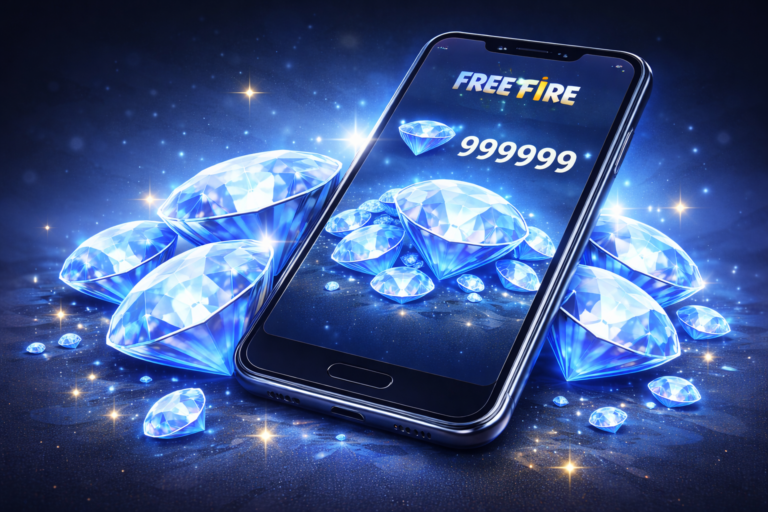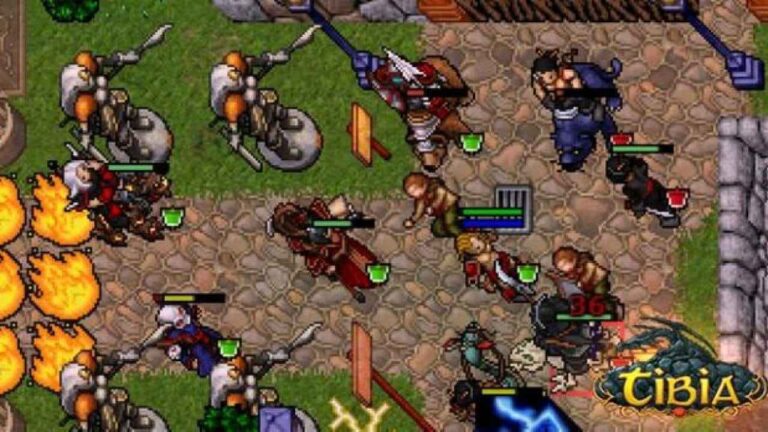Anúncios
Before you can improve, you need to know where you stand. Are you brand new to gaming or have you already clocked hundreds of hours in your favorite title? Maybe you’re somewhere in between. Take a moment to assess your strengths and weaknesses. What games do you play most? Do you struggle with aim, strategy, timing, or team coordination?
Keep track of your stats. Most games — like Fortnite, League of Legends, Valorant, or Call of Duty — offer performance analytics. You can also record your gameplay using tools like OBS or NVIDIA ShadowPlay to review your moves and identify mistakes or missed opportunities.
Anúncios
👉 Tip: Be honest with yourself. Improving in gaming isn’t about comparing yourself to others; it’s about becoming better than you were yesterday.
Optimize Your Gaming Setup
You don’t need the most expensive gear, but your setup should support your growth. That includes your hardware, software, and internet connection.
Start with these basics:
- Stable Internet: Use a wired connection (Ethernet) instead of Wi-Fi to reduce lag and packet loss.
- Low-latency Monitor: A 60Hz monitor is fine for beginners, but 120Hz or 144Hz gives smoother visuals for faster reactions.
- Proper Peripherals: A responsive mouse, keyboard, controller, or headset can make a noticeable difference. Look for gear with low input delay and good ergonomics.
And don’t forget comfort! Invest in a supportive chair and set up your desk ergonomically — this helps with focus and prevents fatigue during long sessions.
Master the Basics of Each Game
Every game has its own language. Whether you’re playing Overwatch, Apex Legends, Minecraft, or Rocket League, the first step is to understand the mechanics inside and out.
Here’s how:
- Learn the rules – Know the game objectives, maps, roles, and scoring.
- Understand the meta – The “meta” is what’s most effective right now. Follow patch notes, watch tier lists, and stay updated.
- Use training modes – Most modern games include practice maps or tutorials. Use them daily to build muscle memory.
The basics may seem boring, but they’re the foundation for everything else. Even pro players revisit the fundamentals constantly.
Improve Reaction Time and Focus
Fast reflexes can be a game-changer, but they’re not just about natural talent. You can train your reaction time just like a skill.
Try these strategies:
- Aim trainers – Apps like Kovaak’s FPS Aim Trainer or Aim Lab are great for FPS games.
- Minimize distractions – Turn off notifications, close unused tabs, and play in a quiet room when possible.
- Play consistently – Short, focused sessions daily are better than marathon weekend sessions.
Staying mentally alert is just as important. Hydrate well, take breaks every 60-90 minutes, and get good sleep.
Learn from the Best: Watch and Study
Sometimes, the fastest way to get better is by watching someone who’s already where you want to be. The internet is full of pro gamers, streamers, and educators sharing their knowledge.
Where to learn:
- YouTube tutorials – Search for “[your game] beginner tips,” “[your game] ranked strategy,” or “[your game] best settings.”
- Twitch streams – Observe how top players position themselves, aim, and communicate.
- Esports tournaments – Watch how pros handle pressure, manage resources, and execute game-winning strategies.
Take notes. Rewatch key moments. Even ten minutes a day of study can elevate your game faster than mindless play.
Practice Efficiently, Not Excessively
Grinding isn’t always the answer. Quality practice beats quantity — especially if you’re trying to improve specific skills.
Make your practice sessions count:
- Set clear goals – “Today I’ll focus on map awareness,” or “I’ll work on sniper accuracy.”
- Review your replays – What went wrong? Could your positioning or timing be better?
- Play against better opponents – You’ll learn more by losing to stronger players than beating weaker ones.
Balance is key. Avoid burnout by keeping gaming fun and rewarding.
Communicate and Collaborate
Online gaming isn’t just about individual performance. Whether you’re playing solo queue or team matches, communication is often what separates good from great.
How to improve communication:
- Use voice chat or quick commands – Share intel: enemy positions, cooldowns, or plans.
- Stay positive – Even when things go wrong, avoid toxicity. Encourage your team and focus on strategy.
- Play with friends – Team synergy improves with trust. If you don’t have friends who play, try looking for communities on Discord or Reddit.
Strong communication builds stronger plays — especially in MOBAs, shooters, and team-based games.
Take Care of Your Body and Mind
Gaming performance isn’t just about your keyboard or controller — it’s about your physical and mental state too.
Physical health tips:
- Stretch your hands and wrists before and after gaming.
- Maintain posture with a good chair and monitor height.
- Exercise regularly to keep blood flow and energy levels high.
Mental health matters too:
- Take breaks when frustrated.
- Don’t define your self-worth by wins or losses.
- Celebrate progress, not just rankings.
Gaming should improve your life, not cause stress. Healthy habits keep your mind sharp and your reactions faster.
Tools, Apps, and Add-ons That Help
There are plenty of digital tools out there to help you play smarter. These range from performance trackers to coaching platforms.
Here are some worth checking out:
- Overwolf – Offers real-time stats and overlays for many popular games.
- Mobalytics – Great for League of Legends and Valorant performance analytics.
- GamerzClass – Paid classes with top-tier pro players.
- Discord communities – Join servers focused on coaching, analysis, and group play.
Use these tools to monitor progress, find teammates, or access high-level strategies tailored to your gameplay.
Mistakes to Avoid
Improving your gameplay is also about avoiding common pitfalls. These are mistakes even experienced players make:
- Blaming teammates constantly – This prevents self-improvement.
- Skipping warm-ups – Cold hands = slow reactions.
- Ignoring game updates – New patches often change strategies, metas, and mechanics.
- Chasing trends blindly – Just because a strategy works for a streamer doesn’t mean it fits your style or skill level.
- Overplaying – Fatigue ruins performance. Learn when to stop.
Stay aware of these traps so you can build better habits and improve consistently.
Conclusion
Improving your performance in online games is a journey, not a destination. Whether you’re learning how to aim better, communicate with teammates, or just get more wins, every step you take matters. And the good news? You don’t have to do it all at once. Start small, stay consistent, and give yourself space to grow.
With the right tools, mindset, and strategies, you’ll not only become a better gamer — you’ll enjoy the process a whole lot more. And that’s the real win.
Keep leveling up — one game at a time.
Frequently Asked Questions (FAQs)
1. How long does it take to see improvement in online games?
It depends on how consistently you practice and the complexity of the game. With daily focused practice, many players see results within a few weeks.
2. Do I need to invest in expensive gear to improve?
Not necessarily. Start with what you have, then upgrade gradually — prioritize internet stability, a responsive mouse/controller, and good audio.
3. Are aim trainers actually useful?
Yes, especially for FPS games. They help you build muscle memory, track targets faster, and improve accuracy in real matches.
4. What should I do when I get frustrated or stuck?
Take a break, rewatch your gameplay, or switch to a lighter game mode. Frustration can cloud judgment and hurt performance.
5. Can parents help their kids become better gamers?
Absolutely! Encourage healthy gaming habits, ask questions, and support their interest. Understanding the games your kids play can strengthen communication and trust.



